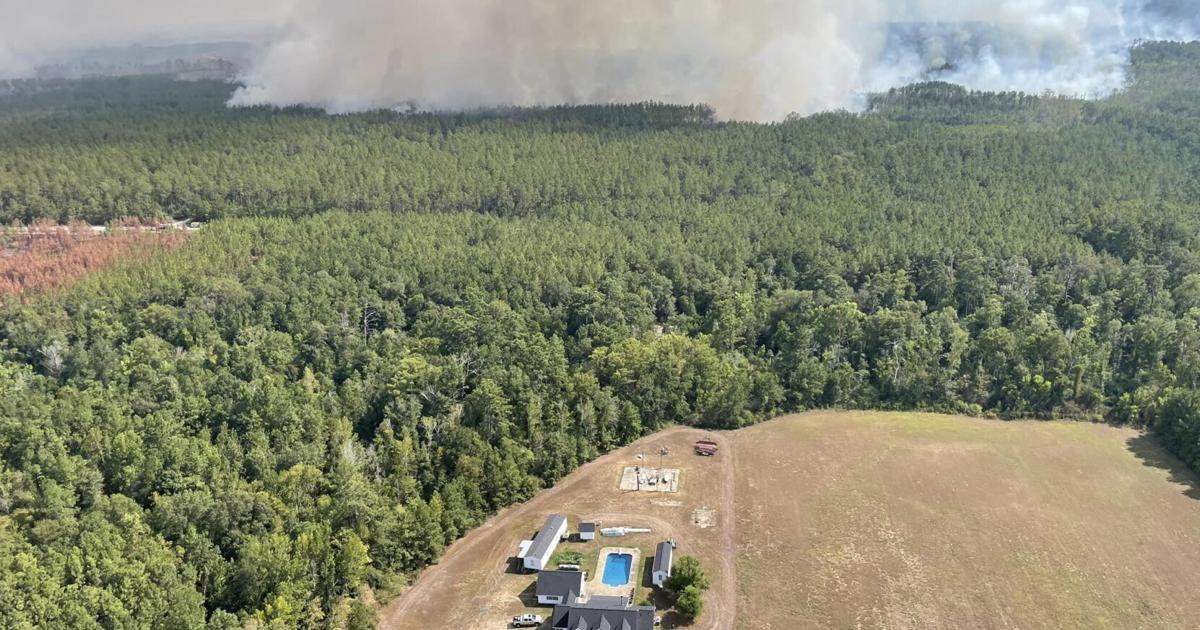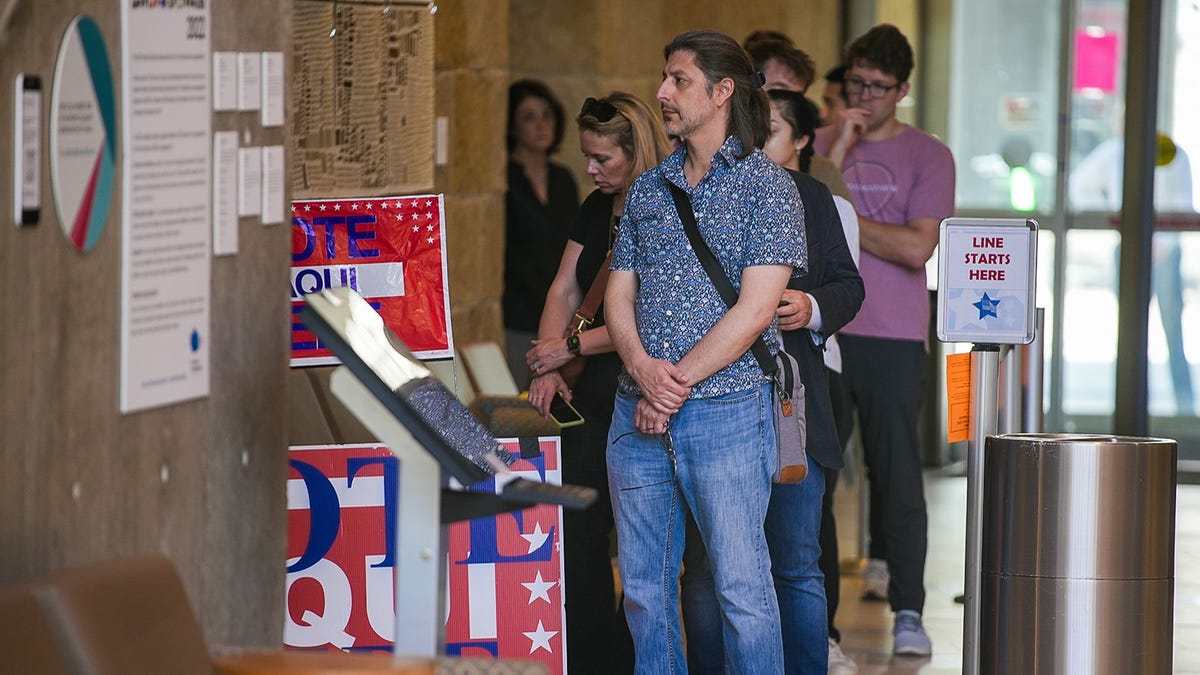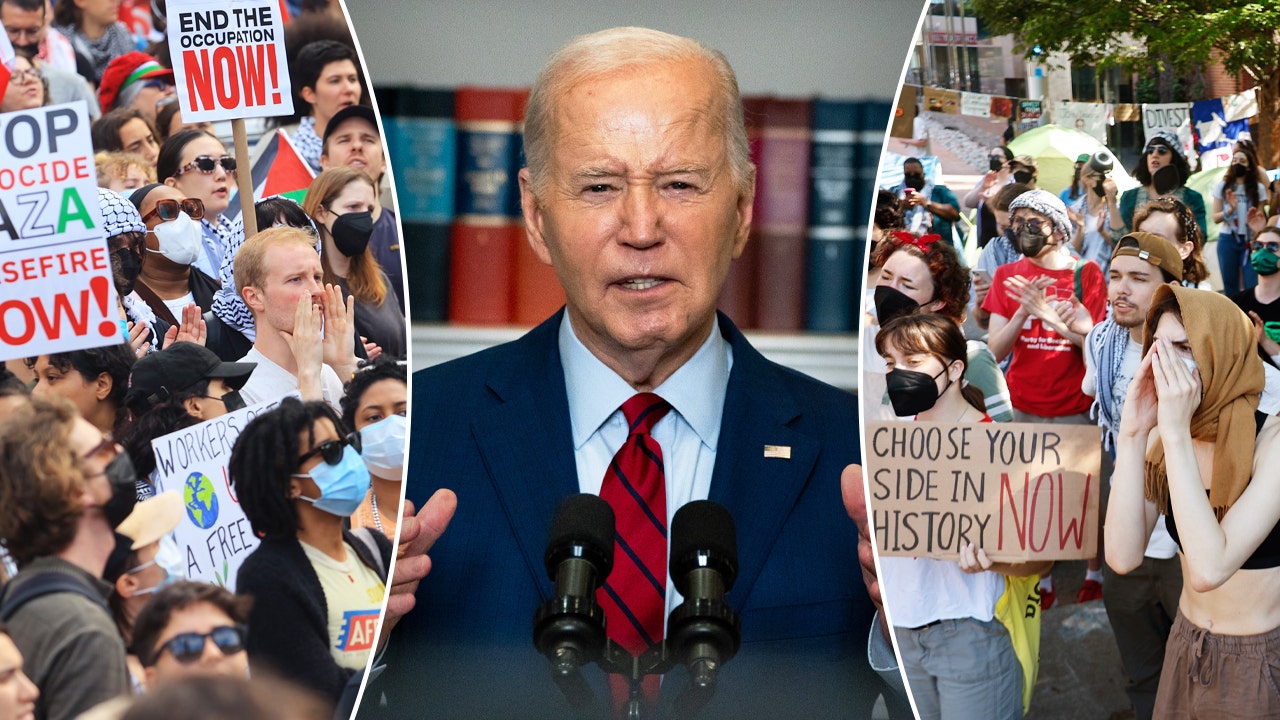Louisiana
Rain slowed but won’t stop Louisiana’s largest wildfire as it creeps toward towns

Louisiana’s largest wildfire doubled in size over the weekend but slowed to a crawl after a short bout of rain on Sunday night.
Predicted hot and dry conditions for much of the week mean the Tiger Island Fire in Beauregard Parish will likely flare up again, fire officials said Monday. The fire, which is burning about five miles from the Texas line, was about 50% contained on Sunday night.
“It doesn’t look like this fire is going to go away anytime soon,” said Susan Heisey, a public information officer for the Southern Area Incident Management Team, an inter-agency organization that took command of the firefighting operation on Sunday.
The fire, which threatens the towns of Merryville and Singer, grew from 16,000 acres late last week to nearly 33,300 acres on Monday morning. Another wildfire in Beauregard near Longville has burned about 19,200 acres, according to the Beauregard Parish Sheriff’s Office. Smoke from both fires has produced smoke that has traveled over New Orleans and beyond. Hundreds of other fires have burned across Louisiana, which has experienced a long-running drought and record-breaking heat in recent months.
Evacuation orders have been called for Merryville and areas near the small community of Junction. A voluntary evacuation order remains in place for areas north of Longville.
At least 20 structures, including homes and barns, have been damaged by the Tiger Island Fire, according to the sheriff’s office. No injuries or deaths have been linked to it.

A bulldozer works to contain parts of a wildfire on Thursday, August 24, 2023, in Beauregard Parish.
Firefighters planned to spend Monday attempting to box-in the blaze by digging fire lines and using roadways as additional containment borders.
The rain and slight dip in temperatures over the weekend offered a bit of a breather for emergency responders who have had their endurance tested over the past week.
“We have an opportunity to catch two things today: We can catch a break and catch up,” Incident Commander Steve Parrish told firefighters during a Monday morning briefing.

A haze settles over New Orleans Sunday, Aug. 27, 2023, as smoke drifts from wildfires burning elsewhere in Louisiana. (Photo by Scott Threlkeld, The Times-Picayune | NOLA.com)
The incident management team’s presence is an indication that the fire now has regional significance. The team, which includes wildfire response experts from several federal and state agencies, is deployed to some of the country’s worst wildfires.
The number of personnel fighting the Tiger Island Fire has grown to 180. Vehicles include at least eight helicopters, 10 tractor plows, and about 30 bulldozers. Firefighters from Texas, Florida and Oklahoma have recently arrived to assist with the response.
This year’s wildfire season has been the most active in at least a decade, according to data from the state Department of Agriculture and Forestry. Wildfires have burned an average of 8,217 acres per year over the past decade, but wildfires during the first three weeks of August scorched twice that amount. Wildfires in August are on track to burn more than five times the annual average by the month’s end.
There’s some uncertainty about whether the Tiger Island Fire is the largest wildfire in Louisiana history. While some state and local officials have called Tiger Island the state’s biggest-ever fire, historic records hint at larger blazes.
One of Louisiana’s most devastating wildfire seasons was in 1924, when up to 17% of the state – about 5 million acres of forest, swamp and marsh – burned from wildfires, according to Times-Picayune archives. In 1942, nearly 1.2 million acres burned in Louisiana, the state forester told reporters in 1951. Some of the fires during 1924, 1942 and other years may have been larger than the Tiger Island Fire.

Louisiana
Parents want school superintendent removed for holding classes in severe weather • Louisiana Illuminator

LAKE CHARLES – The school superintendent for Calcasieu Parish is facing calls for his resignation after he chose not to cancel classes April 10, when three tornados hit the area.
Shannon Lafargue defended his decision in a video statement, saying he kept schools open based on the information available to him and prioritized safety.
However, many community members are angry the superintendent did not cancel school, saying he put students, teachers and staff at risk. Bus drivers are particularly upset, as they were forced to drive through dangerous conditions, including flooded streets and winds of more than 25 mph. Bus routes were further impacted six days later when more than 30 drivers decided not to report to work in protest.
Emails the Illuminator obtained show Lafargue was aware the National Weather Service modified its risk forecast for severe storms April 10 to level 4 out of 5 as early as the morning of April 9. The worst of the weather struck between 4 a.m. and 10 a.m.
The National Weather Service confirmed three separate tornadoes touched down in the Lake Charles area on the morning of April 10. They included an EF-2 tornado with winds up to 115 mph near McNeese State University, and two EF-1 twisters in Cameron Parish.
At the April 16 Calcasieu Parish School Board meeting, District 11 representative Phylis Ayo asked for a formal investigation of how the school superintendent handled the April 10 weather event to determine where the breakdown in communication occurred.
“Something went down, and we don’t know what it is. A formal investigation needs to happen sooner rather than later,” Ayo said.
A unanimous board vote was needed to add an item to the meeting’s agenda for the proposed investigation. District 8 Representative Eric Tarver said he would not support the motion, drawing boos from the standing-room-only audience. Board members Billy Breaux, Glenda Gay and Dean Roberts also voted against the agenda change.
At a special board meeting April 30, Lafargue recommended school board members approve a delayed school start protocol for future weather events. Bus drivers also got the opportunity to air their grievances, with many saying Lafargue owed them an apology.
Bus driver Sharon Welcome said school district officials have previously failed to prioritize the safety of bus drivers, students and teachers during severe weather.
“It’s not the first time. It’s not the fourth or the fifth time that something like this has happened. Enough is enough,” Welcome said. “I’m not going to jeopardize myself for your negligence.”
“The buck stops with you, bus drivers,” Kathy Landry, district representative for the Louisiana School Bus Operators Association, told drivers in the audience. “As your rep, anytime you don’t feel it’s safe to drive that bus, you don’t have to, and the federal government will back us on that one.”
Corey Arvie said he had seven students on board when the severe weather struck April 10. The conditions left them stuck in the middle of the road, less than 2 miles away from the tornado that struck Ryan Street. Arvie said his bus was facing toward the wind, and he worried about tree limbs crashing through his windshield.
“Today marks 20 days that I’ve dealt with trauma, crying out of nowhere, trying to earn the trust of parents again to be their bus driver,” Arvie said. “It’s hard getting up every morning knowing that these parents are trusting us with their kids’ lives, and any wrong turn, any little mistake can cost a life. It’s hard for us to keep going right now.”
Arvie said bus drivers should be represented on the school board and among school district leadership.
“I really do feel like … there should be a bus driver, either on the crisis team, in an office, because no one knows what we go through on a day-to-day basis.”
Teri Johnson, a Southwest Louisiana Federation of Teachers and School Employees representative, asked Lafargue to apologize to those in the audience.
“I haven’t earned your trust. I’m going to do something about it tonight,” Lafargue responded. “It may be too late, but at least from this point forward, no matter what happens to me, our district is going to be better … You voiced your opinion. I said in that video, that didn’t resonate with you, that this will never happen again. You are the most valuable people … I take full responsibility, and everything that goes with that is an apology.”
The school board approved a delayed start policy that would go into effect when severe weather threatens, allowing school to begin as late as 10 a.m.
According to District 10 School Board member Tony O’Banion, the board has received evaluation forms that would decide Lafargue’s future with the system. He told the Illuminator the board will go into executive session during its May 14 meeting to discuss the evaluations and will decide whether Lafargue’s contract will be renewed by June 30.
Louisiana
Special education, income quotas could be removed for charter school enrollment • Louisiana Illuminator

Louisiana charter schools might soon be able to remove certain enrollment requirements for students with disabilities and economically disadvantaged students. It’s a move that parents of those students feel limits their options in a school system based on choice.
House Bill 708, authored by Rep. Barbara Freiberg, R-Baton Rouge, moved out of the Senate Education Committee on Wednesday, despite initial pushback from some committee members and the public. It heads next to the Senate floor and, if approved, would have to go back to the House for concurrence on a committee amendment.
In 2015, former Sen. Dan Claitor authored a bill to add the language to state law that Freiberg is trying to remove. Claitor spoke to the committee in opposition to Freiberg’s bill.
Under Claitor’s bill, certain charter schools must have a percentage of students equal to 85% of the disabled or economically disadvantaged students in the local school district.
For example, if 55% of a local school district’s population is economically disadvantaged students, 46.75% of the charter school’s enrollment must be economically disadvantaged students.
Sen. Beth Mizell, R-Franklinton, questioned the reasoning behind Freiberg’s bill.
“I am a hundred percent charter, but I don’t understand the resistance,” Mizell said. “I don’t understand taking the rule out that gave us the only protection saying charters are absolutely fair across the board.”
Proponents of Freiberg’s bill said the quotas are unfair because charter schools are held to a higher standard than other public schools. Standard public schools are not required to enroll a certain number of students with disabilities or economic disadvantages.
“The quotas only give people who have an ax to grind an ability to go in to be able to cause harm,” said Kenneth Campbell, previously the executive director of charter schools for the Louisiana Department of Education.
Some charter schools have selective admissions and have resisted providing special education services, although they’re required at public schools under state and federal law.
GET THE MORNING HEADLINES DELIVERED TO YOUR INBOX
Proponents also argued it is not fair to require that parents provide their household income or children’s disability details on charter school applications when public schools do not require the same information for enrollment.
Opponents of the bill reminded the committee that since Claitor’s law was enacted in 2015, the number of charter schools in compliance with the enrollment quotas has increased but is still not adequate.
According to a Louisiana Legislative Auditor report in 2022, 10.3% of charter schools required to serve a specific number of economically disadvantaged students did not meet the requirements. The rate is an improvement from the 2016-17 school year, when 21.3% charters did not reach their quota.
The report also says multiple schools repeatedly failed to meet the economically disadvantaged requirement. It did not include information on how many schools were meeting the requirement for students with disabilities.
Opponents of Freiberg’s bill were also concerned that removing the quota would allow “bad actors.”
“If we remove that requirement for charter schools to even serve those populations, there are going to be schools that figure out ways to avoid serving those children,” said Tania Nyman, an education advocate from East Baton Rouge Parish. “And that is not going to be beneficial for the community at large.”
Although the proposal removes “goal lines” for charter schools, it still requires the Board of Elementary and Secondary Education to create rules and regulations to oversee charter schools in this capacity. The stipulation was added as an amendment in committee.
Ashley Townsend, deputy policy chief for the Louisiana Department of Education, explained to committee members that BESE would essentially create a complaint process for parents to turn to if they feel that a charter school is discriminating against children with disabilities or those who are economically disadvantaged.
Ben Lemoine, BESE’s executive director of governmental relations, indicated that board members support Freiberg’s legislation.
Louisiana
A boy gave his only dollar to someone he mistook as homeless. In exchange, the businessman rewarded him for his generosity.

Baton Rouge, Louisiana — Matt Busbice and his partners have built and sold several outdoor companies worth hundreds of millions of dollars. But Busbice, the 42-year-old owner of sporting goods store BuckFeather in Baton Rouge, Louisiana, says he has never felt richer than he did the day he received a single dollar.
“I haven’t had that much faith in humanity in a very long time,” Busbice said.
He says it all began about a month ago. It was early morning, and the fire alarm was going off inside his condo complex. So, Busbice shot out of bed and raced down the stairs only to discover there was no fire. But he was awake now, so even though he was wearing mismatched clothes and was disheveled, he decided to go out for a cup of coffee.
As he was about to enter the coffee shop, he remembered he hadn’t done his morning prayer. So as the security camera shows, Busbice stepped to the corner of the patio to pray.
“And I started to slowly open my eyes, and there’s a kid coming at me, about my height,” Busbice said.
The boy had his fist clenched, so Busbice prepared for a confrontation. But instead, the boy opened his fist to reveal a $1 bill.
“And I go, ‘What?’” Busbice said.
“‘If you’re homeless, here’s a dollar,’” 9-year-old Kelvin Ellis Jr. recalls telling Busbice. “…I always wanted to help a homeless person, and I finally had the opportunity.”
Ellis says he had just gotten the dollar for good grades. It was the only money he had to his name. Busbice was so touched, he invited Ellis in for a snack and then connected with Ellis’ father, who was next door, and promised to stay in touch.
As a reward for his kindness, Busbice gave Ellis a shopping spree — 40 seconds to pick out whatever he wanted in BuckFeather, including a new bike. Ellis says it was great, but definitely not what he wanted to get for his dollar.
“Joy, because I helped someone,” Ellis said. “Give something away, and you feel like you’ve got a lot of things from it.”
“If you give, you’re actually going to get more out of that,” Busbice said. “I couldn’t grasp that as a kid. And if we can spread that around, everything changes.”
-

 News1 week ago
News1 week agoLarry Webb’s deathbed confession solves 2000 cold case murder of Susan and Natasha Carter, 10, whose remains were found hours after he died
-

 News1 week ago
News1 week agoFirst cargo ship passes through new channel since Baltimore bridge collapse
-

 World1 week ago
World1 week agoHaiti Prime Minister Ariel Henry resigns, transitional council takes power
-

 World1 week ago
World1 week agoSpanish PM Pedro Sanchez suspends public duties to 'reflect'
-

 World1 week ago
World1 week agoUS secretly sent long-range ATACMS weapons to Ukraine
-

 News1 week ago
News1 week agoAmerican Airlines passenger alleges discrimination over use of first-class restroom
-

 Education1 week ago
Education1 week agoVideo: Johnson Condemns Pro-Palestinian Protests at Columbia University
-

 Movie Reviews1 week ago
Movie Reviews1 week agoAbigail Movie Review: When pirouettes turn perilous


















